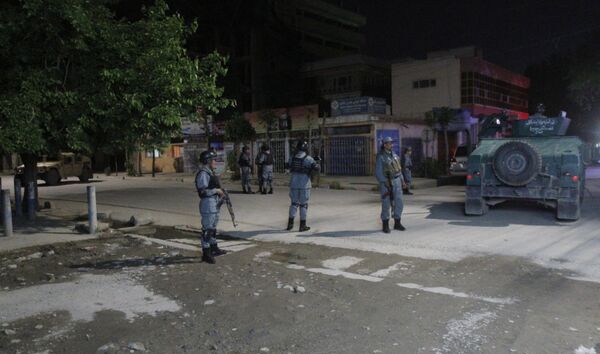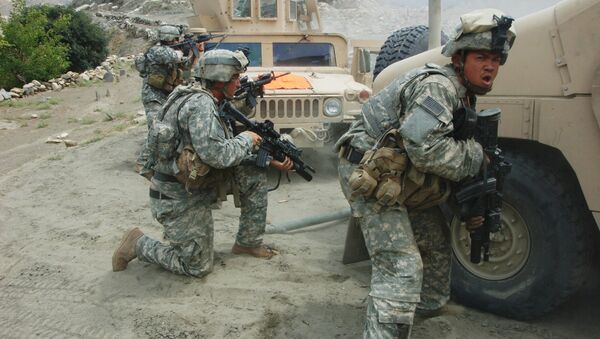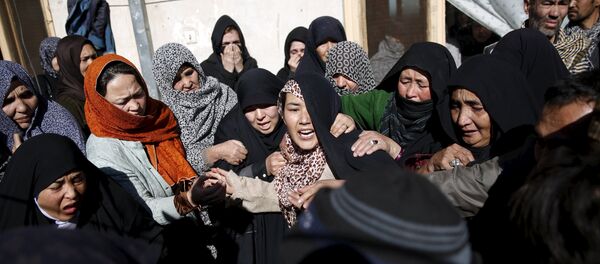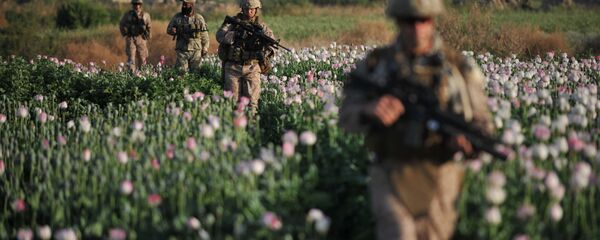"It hasn't mattered if the United States had 100,000 troops, as it did in 2010; the 38,000 troops it had in 2014; or the current number of 9,800. The Taliban continue to grow in strength, the government continues to founder and now ISIS (Daesh) is making significant inroads into Afghanistan," Davis wrote.
The analyst quoted General John Campbell, Commander of US Forces in Afghanistan, who told the US House Armed Services Committee on Tuesday that the US needs to retain a troop presence in Afghanistan for the next five years, and criticized the White House plan to cut the level from its current 9,800 to 5,500 by the end of 2016.
That number of troops would leave the US with "a very limited ability" to conduct its counter-terrorism operations and its mission to train, advise and assist Afghan security forces, Campbell told the Committee, Stars and Stripes reported.
"The United States must continue to show flexibility with our mission in 2016 and beyond," Campbell said.
Davis also cited Lieutenant General John W. Nicholson, who will succeed Campbell as the top US commander in Afghanistan.
Nicholson told the Senate Armed Services Committee last week that America's vital interests and objectives in Afghanistan form part of the 2015 National Security Strategy, two main pillars of which are "combatting the persistent threat of terrorism," and "building capacity to prevent conflict."
"The US presence in Afghanistan aims to defeat al Qaeda and its affiliates, contribute to regional and international peace and stability, and enhance the ability of Afghanistan to deter threats against its sovereignty, security and territorial integrity," Nicholson said.
Davis was scathing in his assessment of 14 years of US efforts to reach the aims: "By every measure, the US military mission in Afghanistan has outright failed to attain those objectives," he wrote.
In addition, Nicholson's claims that "the Afghan National Defense and Security Forces (ANDSF) have more than held their own against the insurgency," and that "the ANDSF continue to demonstrate that they are a competent and confident force, and have embraced their role in securing Afghanistan," do not correspond to reality.
The analyst pointed to a report published by the Center for Strategic and International Studies (CSIS) in December, which described the Afghan government and ANDSF as "losing at every level: Politics, governance, economics, security, and popular support."
"This becomes brutally clear from the metrics available on the war, as well as from virtually all media reporting."
"It is also clear from the fact that the Obama administration is steadily having to revise its plans for Afghanistan, extending the military train and assist mission from a planned end in 2016 to 2017 or beyond, and gradually adapting its size and scale to the fact that the threat is steadily gaining both in military terms and in the far more important area of regional presence, control, and influence," CSIS wrote.

"It was easily the most deadly single attack against journalists ever made in Afghan history," Rashid wrote.
"Such is the current level of lawlessness and insecurity in Afghanistan, four months after President Obama concluded that the continuing withdrawal of US troops was leading to chaos. Just today, another Taliban car bomb killed at least twenty police in front of a police building in the capital. Despite a remaining garrison of 9,000 US troops and advisors, American diplomats now travel only by helicopter for meetings, even inside Kabul. The Taliban control almost all the major roads in the country, which they can shut down when they choose, thereby isolating the major cities and preventing the supply of foodstuffs and trade from six neighboring states."
In The National Interest, Davis concluded that "dramatic changes" are required to US policy and military strategy " that utterly fail to achieve ever illusory US objectives."
"At some point the American people and Congress have to demand accountability" for those setting the strategies, Davis wrote.
"The current debate about whether we should have 9,800 or 5,500 service members in Afghanistan is unreservedly futile—neither will accomplish stated American goals."
"If the desire is to improve security for American citizens and interests worldwide, then changes are required."




